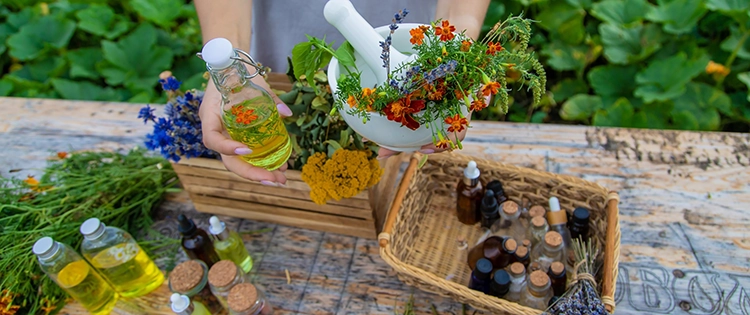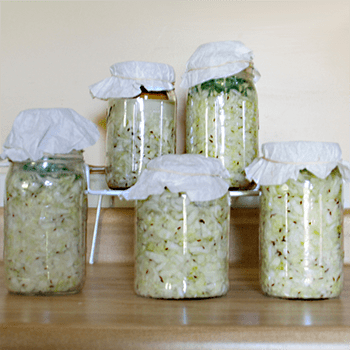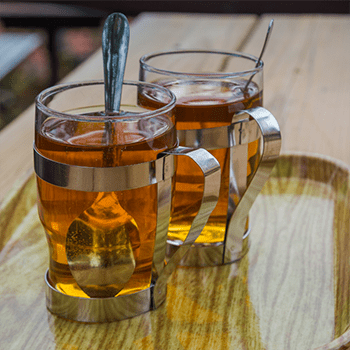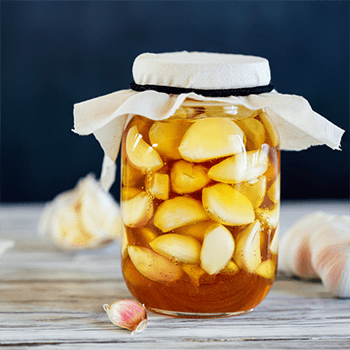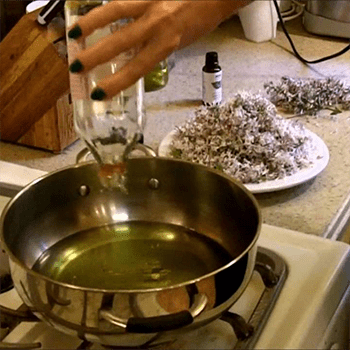You want to have a toolkit handy to treat everyday illnesses such as a sore throat, cough, cold, flu, headaches, skin irritations, and stomach bugs that come along from time to time, especially when you do not have access to your doctor or chemist.
Fortunately, nature provides us with many replacements for allopathic and prescription drugs. You can buy some of them from your pharmacist or health food store now, select others from your kitchen cupboard, or gather them from your herb garden or natural surroundings.
Being prepared by keeping natural remedies in your medicine cabinet to treat the ailments caused by viruses and bacteria is the best option.
Talk to your doctor about adding herbal treatments to your current medications and when you are pregnant or breastfeeding. Studies show that overusing and long-term consumption of any substance may cause side effects, while some may have the desired results for a family member but not for you.
Natural Cold, Sore Throat, and Cough Remedies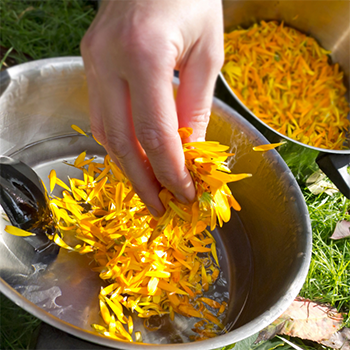
Pelargonium or geraniums, elderberry syrup, and echinacea or coneflowers reduce the symptoms and shorten the duration of colds. We suggest you try them to see which one works best for you rather than using them together.
Some natural cough and cold remedies contain pelargonium which shortens the severity and timespan of the discomfort, while elderberry syrup has antiviral properties to relieve flu and colds.
Echinacea fights various bacterial infections and is available as pills, drops, and teas. It may lessen cold symptoms, strep throat, toxic shock syndrome, and flesh-eating disease if you start taking it as soon as the warning signs appear.
Soothe a sore throat or cough with a spoon of antibacterial honey or stir it into a comforting cup of tea containing slippery elm or licorice. Both have coating properties and reduce irritation.
Honey draws out infection and heals wounds. It treats about 60 types of bacteria, including methicillin-resistant Staphylococcus aureus, that can cause joint, bone, bloodstream, skin, soft tissue infections, and pneumonia.
Digestive Problems, Nausea, and Upset Stomach
Probiotics are live, gut-friendly yeasts and bacteria that have several health benefits.
Doctors prescribe them to alleviate the problems caused by antibiotics. They also treat diarrhea resulting from an infection.
Raw sauerkraut, dark chocolate, pickles, olives, raw cheese, kimchi, kombucha, miso paste, and yogurt are excellent substitutes if you do not have a pre-packaged supplement available.
Ginger is a natural antibiotic that is also helpful against motion sickness and nausea. Look for a medicinal brand of tea or try candied ginger when traveling.
Topical Creams for Skin Irritations and Soreness
Tea tree oil is an anti-inflammatory that relieves fungus and bacterial infections, so you can apply it to treat athlete’s foot and acne.
Arnica cream eases bruising, aching, and painful muscles. Calendula alleviates skin irritations such as diaper rash and eczema.
Natural Remedies for Anxiety and Insomnia
You need not necessarily take an oral antidote against anxiety.
Relaxation techniques can comfort and help you cope. Deep, slow breathing with an open chest, calming thoughts, and planning may do the trick. Take the time to inhale for four seconds and exhale for six to calm the nervous system.
Listen to relaxing music while shifting your focus from one thing to the next.
Anxiety and sleeplessness remedies include valerian, passionflower, chamomile tea, lavender aromatherapy oil, and lemon balm. Many people find Rescue Remedy®, containing five Bach flowers, to relieve acute stress. You can buy it over the counter from most health outlets.
Natural Antibiotics
It is vital to know which natural antibacterial substances are safe to use and when, especially if you are allergic to penicillin, antibiotics harm your digestive system, or circumstances prevent you from getting to your doctor or chemist.
Garlic is safe and can be effective against multi-drug-resistant tuberculosis, E. coli, salmonella, and other forms of bacteria.
Goldenseal, orangeroot, or yellow puccoon from the Buttercup family is available in capsule and tea form. Use it to combat respiratory problems, digestive disorders, skin, and urinary tract infections. It is not safe for infants, pregnant, and breastfeeding women.
Soak antifungal, antiviral cloves in water to fight bacteria, including E. coli that cause digestive disorders, and keep the spice or gel on hand to fight toothache. Oregano oil could boost the immune system and has anti-inflammatory, antioxidant, and natural antibiotic properties.
Pain Relief
There are several natural options for obtaining pain relief. These include essential oils. They are toxic if swallowed, so you should not ingest them. Inhale or apply them to your skin diluted with a carrier oil. Add three to five drops of essential oil to an ounce of sunflower, evening primrose, olive, or jojoba carrier oil.
Lavender essential oil may relieve anxiety, sleeplessness, headaches, and pain. Rosemary could relax muscles and reduce soreness, inflammation, seizures, and headaches.
Studies suggest that peppermint essential oil has pain-relieving, antimicrobial, and anti-inflammatory properties for topical arthritis and muscle spasm treatment. Rub it on your forehead and temples to ease a tension headache but do not use it near children or apply it to broken skin.
Eucalyptus might reduce inflammation, swelling, and tenderness. You can inhale it to ease discomfort after an operation. Remove kids and pets from the room first and do a spot check on your skin to ensure you do not have an adverse reaction.
Add turmeric to juices, smoothies, and curry dishes, or take it for four weeks to reduce inflammation and manage osteoarthritis pain. Many pain-relieving products, topical creams, and patches contain capsaicin, an ingredient in chili peppers. It mutes the pain signals carried by nerves.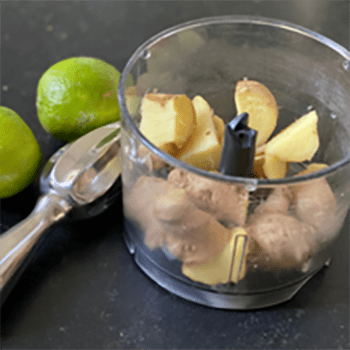
Eat two grams of raw ginger daily for five days to reduce inflammation in overworked muscles. You may want to add it to tea or a smoothie instead.
Feverfew is a medicinal plant traditionally used to treat toothaches, rheumatoid arthritis, stomach aches, muscle spasms, fever, and boost breast milk supply. It may also prevent migraines.
Talk to your physician before harnessing its analgesic or pain-relieving attributes as it may cause disagreeable aftereffects in some.
When Do Natural Remedies Come in Handy?
You want a backup plan if you are cut off from access to healthcare or worried about the escalation of drug-resistant bacteria. Consider growing a medicinal herb garden at home or stock up on and store effective remedies.
You may even find helpful medicines growing in vacant lots or through cracks in the sidewalk. Besides being freely available, natural medicine is also sustainable, easy to learn about, belongs to everyone, can be used as a barter item, and can help you heal.
This article first appeared here.
Natural Remedies From The Amish
If You See This Plant in Your Backyard, Burn It Immediately! (Video)
10 Medicinal Plants You Can Find On Your Homestead
